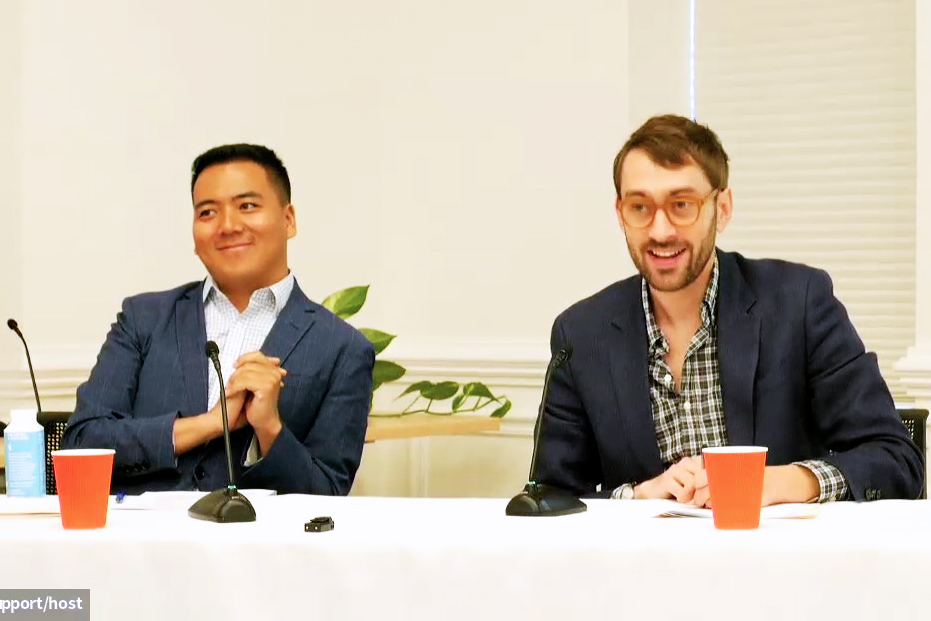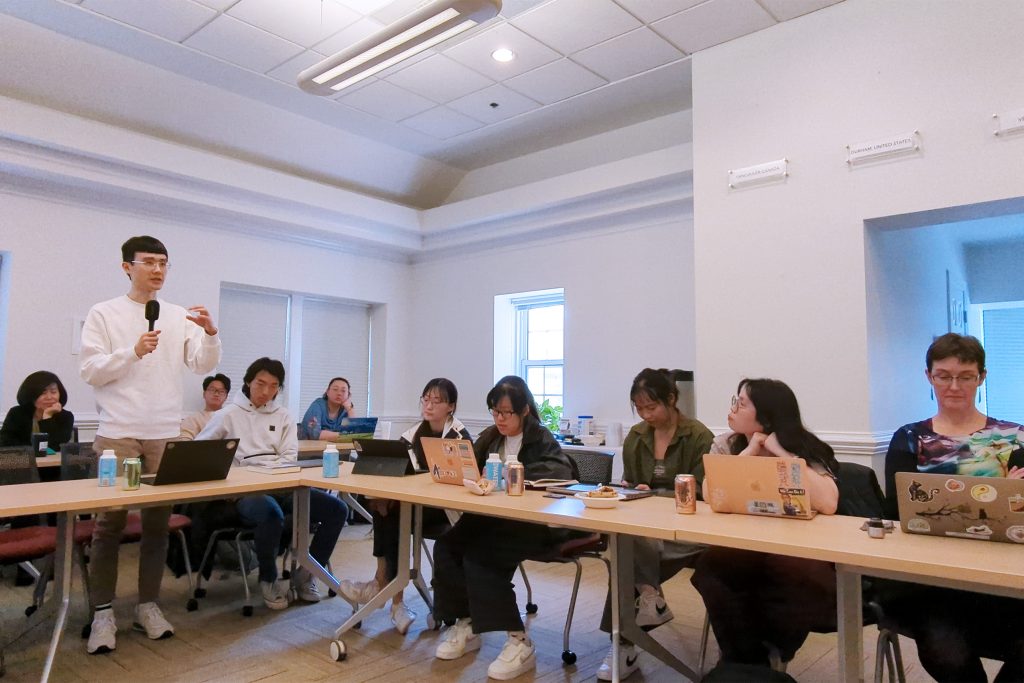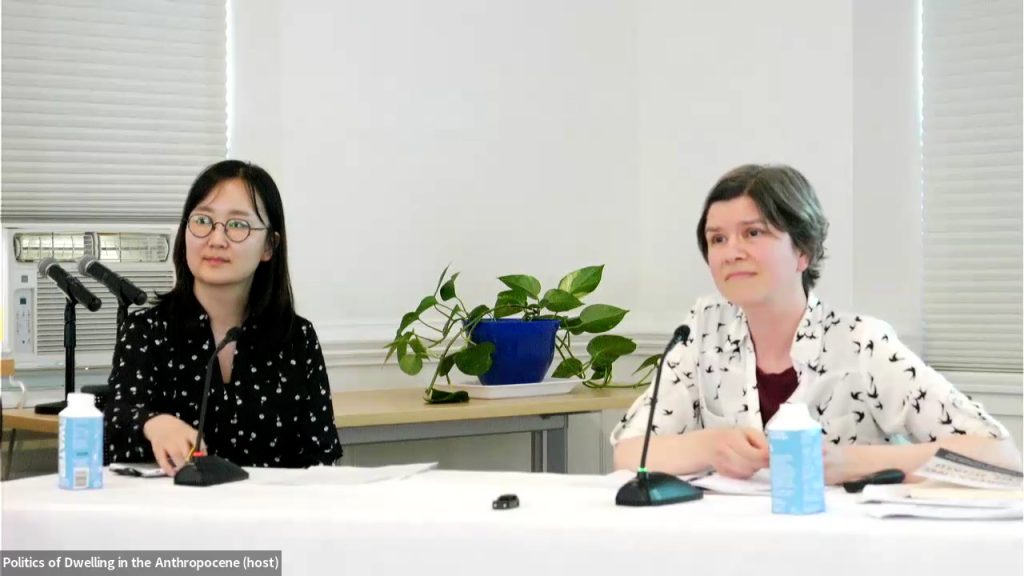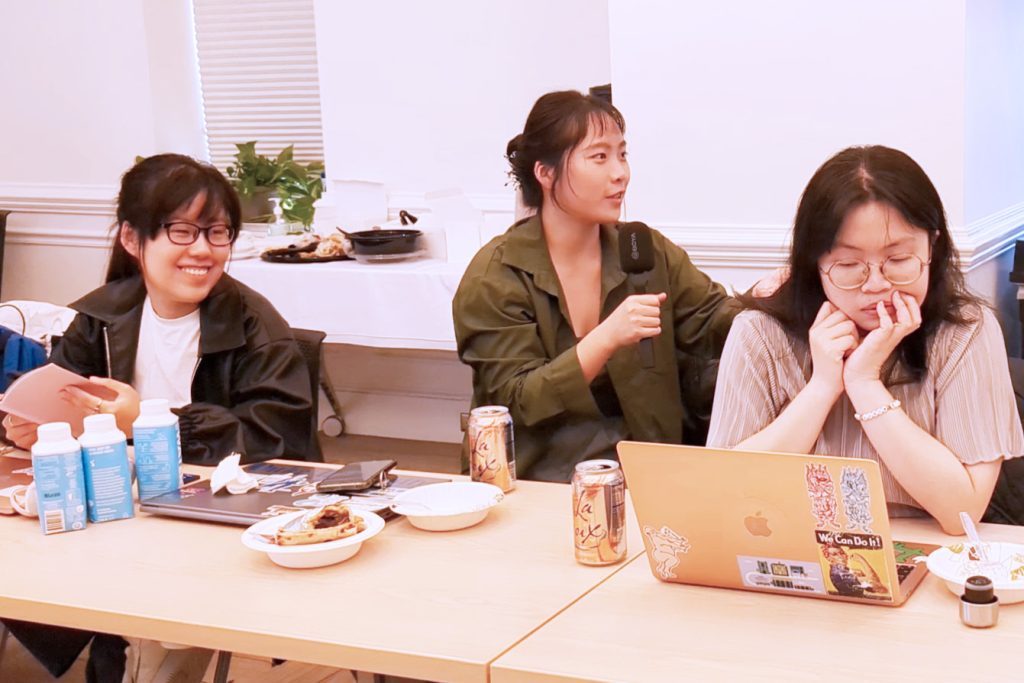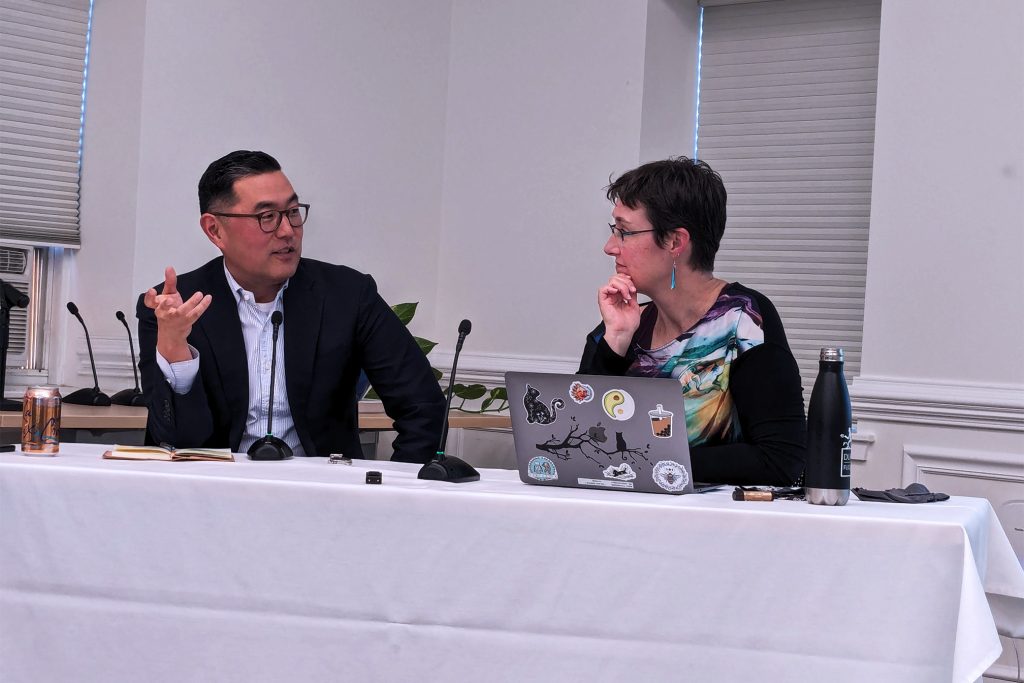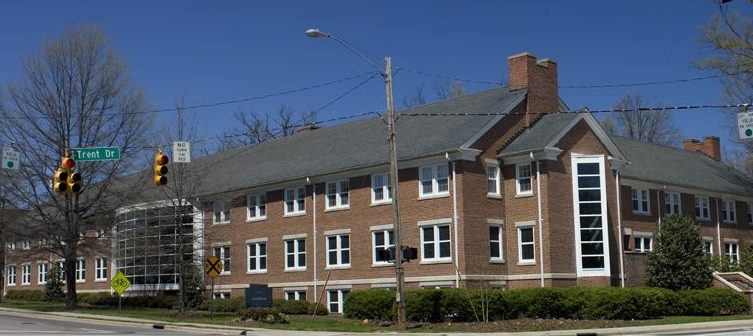Except where noted, all sessions take place in the Ahmadieh Family Conference Hall, Room 240, John Hope Franklin Center
2204 Erwin Rd, Durham, NC 27705
(find on Google Maps)
Read a recap of the day’s events >>
April 25, Thursday
4:00 – 6:00 pm
Film screening: Legend of the Water Flowers
Introduction by Jieun Cho
April 26, Friday
9:00 am – 9:30 am
Welcome Coffee
9:30 am – 10:00 am
Introductory Remarks
Prasenjit Duara
10:00 am – 12:00 noon
Panel 1: Dwelling in Ecological Ruins
Moderator: Ralph Litzinger
Matthew Shutzer
“Dwelling in Ruins: Forensics of Fire in India’s Fossil Economy”
Abstract: This presentation will develop the analytic of historical forensics in explaining contemporary movements for housing, land restoration, and environmental justice in India’s Jharia coalfield, one of the world’s largest and longest-burning underground mine fire zones. Drawing from ethnographic and historical research, the presentation will explore the transformation of Jharia from an upland, agropastoral landscape in the mid-nineteenth century into the “coal capital” of contemporary India’s fossil economy. At stake in this transformation was the emergence of India as a major fossil fuel-producing nation, which in turn remade Jharia’s land, water, and climate systems through the patterned and cumulative destruction of the subterranean earth. The outbreak of mine fires, which first officially appeared after 1906, was only one of the most spectacular examples of an encompassing environmental crisis that would come to threaten millions of people with displacement, sickness, and death by the close of the twentieth century. “Dwelling in Ruins” will help us to read the politics of the Anthropocene through the historical shifts of a critical mining landscape in the wake of both empire and post-colonial development.
Huatse Gyal
“‘We intend to stay on our ancestral land’: Restoring Land by Revitalizing Intergenerational Relationships in Eastern Tibet”
Abstract: The Tibetan plateau, also known as the ‘water tower of Asia,’ is heating up by 0.3 °C. each decade, more than twice the worldwide average with far-reaching consequences. Simultaneously, in the past few decades, indigenous Tibetan pastoralists have been confronted with a mandatory grassland fencing policy, followed by a mass relocation policy that have fundamentally challenged their very social existence. Drawing on two Tibetan community leaders’ efforts to restore their ancestral land by revitalizing intergenerational relationships in eastern Tibet, this paper details the emergent and innovative forms of land restoration efforts that center land-based community building as a precondition to environmental protection. In doing so, the paper presents a larger argument about how ethnographic attention to individual and community efforts to mobilize collective and creative actions, to build habitable dwelling places, may offer us opportunities to answer ‘what makes a good life” in the midst of political and environmental catastrophes today.
< Lunch Break >
12:45 pm – 2:45 pm
Panel 2: Dwelling in Nuclear Aftermaths
Moderator: Anne Allison
Jieun Cho
“Dwelling with Patchy Radiation”
Abstract: Since the 2011 Fukushima Daiichi nuclear disaster, people living in Fukushima have coped with disaster-induced radiation beyond designated hazard zones. Whereas governance of radiation’s risk relies on cartographic methods such as remote sensing, modeled simulations, and zoning policies, people have begun to interact with radiation in more tangible ways. This paper investigates how those in differentially exposed towns reconfigure their social worlds by engaging with radiation in their everyday places. It argues that sensory encounters with “patchy” radiation can serve as a fertile ground for negotiating key elements of a good life, such as safety, health, and community. This, in turn, fosters new social imaginaries in challenging environments, offering insights into the creation of life post-nuclear.
Shannon Cram
“Here, in the Plutonium”
Abstract: What does it mean to reckon with a contaminated world? In this presentation, I investigate the social politics of this question at the Hanford Nuclear Reservation, a former weapons complex in Washington State. Home to the majority of the nation’s high-level nuclear waste and its largest environmental cleanup, Hanford is now tasked with managing toxic materials that will long outlast the United States and its regulatory capacities.Blending ethnography and personal narrative, this talk considers the structural impossibilities associated with Hanford’s cleanup as well as the normative categories that inform atomic hazard. It recognizes that multi-millennial waste will inevitably exceed its institutional containers, and that administering eternity has unthinkable, science-fiction-like qualities. But it also explores the powerful conditions and contexts that define unthinkability itself—the social relations that designate some impacts as reasonable and others inconceivable, allowing cleanup to distribute survival unevenly. Thus, it considers both the concrete and constructed realities of contaminated life, and the oft-blurred boundaries between the two.
< Break >
3:00 pm – 5:00 pm
Panel 3: Dwelling in Scientific Terrains
Moderator: Prasenjit Duara
Nicole Barnes
“Race against Time: Toilets and Civilization in Modern China”
Abstract: China’s development after the death of Chairman Mao Zedong in 1976 was a race against time, a response to that gnawing desire to catch up to the capitalist world as quickly as possible. It is no accident that China’s alignment with industrial capitalism happened at an unprecedented speed. Time had already run out when the process began in 1978. This presentation considers the deceptively banal topic of flush toilets, and their counterparts the nightsoil buckets bound for the farmers’ fields, from the perspectives of time and space. It is a meditation on soil as a multispecies world that easily escapes our notice, precisely because it occupies slow time and dark space, while we exhaust our lives above ground in a harried space-time of abnegation. It considers two developments in reform-era China that had abiding impacts on soils –chemical fertilizers and sewer systems –and attempts to imagine an otherwise.
Albert L. Park
“Noticing Nature in Colonial Korea: Integrative Mapping, Energy and Converting Matter through Agricultural Science”
Abstract: How was human authority over the non-human world emphasized and strengthened during the Japanese occupation of Korea through agricultural science? What scientific mechanisms of mediation emerged and altered the rhythms and patterns of nature, especially in conditioning the potential energy of nonhuman life and converting matter into productive forces? What is the relationship between science and imperialism in the modern world? This presentation examines the intersection between the capitalist modernization of agriculture in colonial Korea, the pathways of science to extract and reconfigure colonial bodies and landscapes to align them with new systems, and the meaning of destruction on the Korean peninsula. It looks at these themes through a reading of The Suwŏn Agricultural Experiment Station, which was one of the largest agricultural stations in Imperial Japan. In so doing, this presentation explores the relationship between science, authority, and systems in the modern world.
5:00 pm – 5:30 pm
Closing Remarks
Prasenjit Duara
Questions? Please contact Dr. Jieun Cho.
